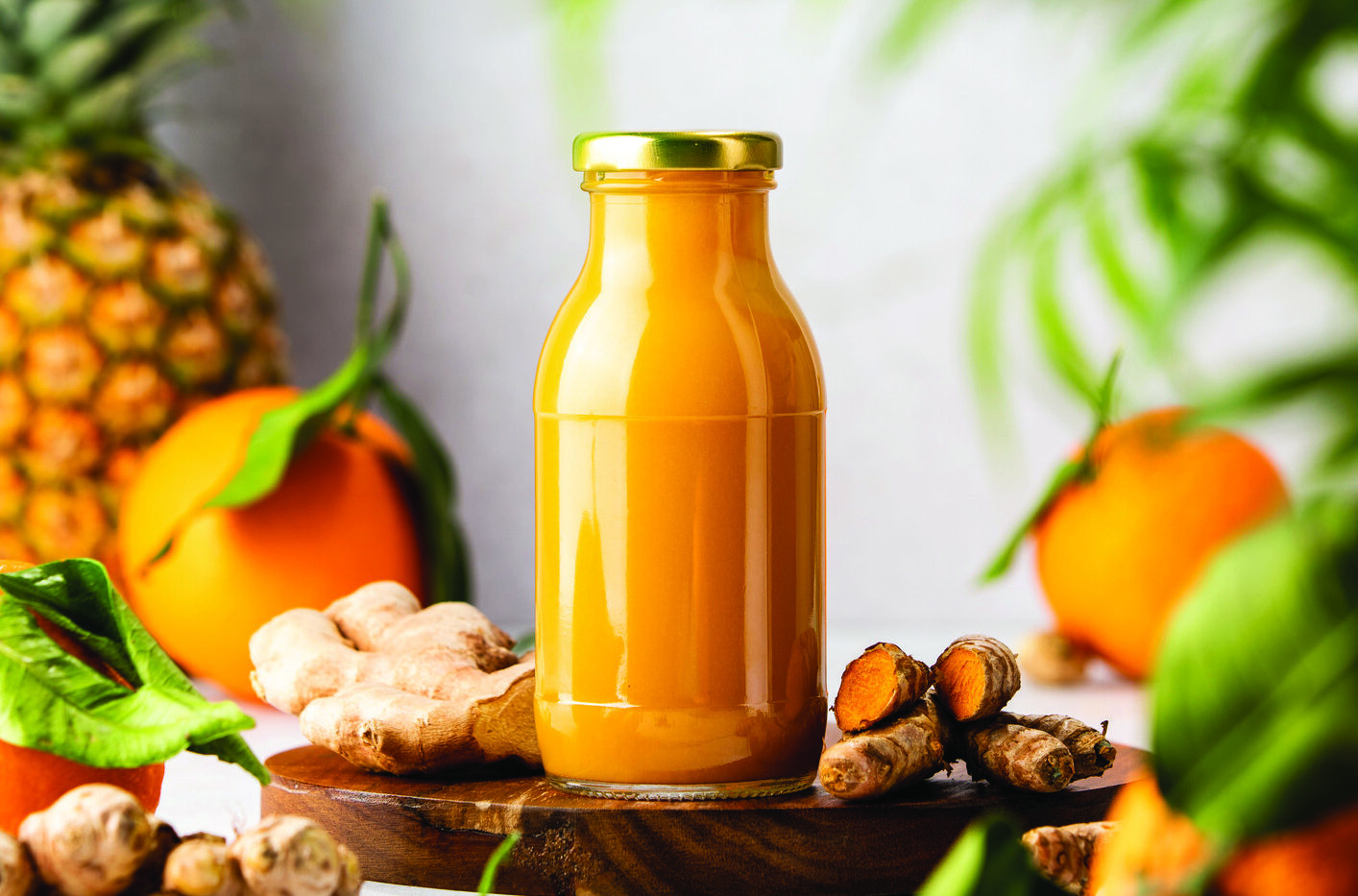by Brandy Abalos
Turmeric has many proven health benefits. Curcumin, the active ingredient in turmeric, can benefit the body and brain in many ways. In fact, it may be one of the most effective nutritional supplements on the market.
What Is Turmeric?
Turmeric is a yellow spice made up of many compounds with various properties. The most important compound in turmeric for medicinal purposes is curcumin. In India, turmeric has been used for thousands of years to spice curry dishes as well as a medicinal herb.
How Does Curcumin Work?
The curcumin content of turmeric isn’t high. It’s about 3% of the total weight of the turmeric. Getting a medicinal strength amount of curcumin from diet alone would be extremely difficult. Instead, many people take supplements of turmeric extracts that contain high levels of curcumin.
Black pepper contains piperine, a natural substance that enhances curcumin absorption by 2,000%. Most curcumin supplements also contain piperine. Additionally, curcumin is fat-soluble. Therefore, it breaks down and dissolves in fat or oil. It is recommended that a person take curcumin supplements with a high-fat meal.
Turmeric Reduces Inflammation
Turmeric, through its potent ingredient curcumin, is a natural anti-inflammatory substance. While acute or sudden onset inflammation is not always harmful, chronic inflammation can indicate a severe health condition like metabolic syndrome, degenerative disease, cancer or heart disease. Turmeric can combat chronic inflammation and help treat these conditions.Curcumin is required in very high levels to have anti-inflammatory benefits. It can suppress molecules known to play a role in inflammation.
Turmeric Increases Antioxidant Capacity of the Body
One of the causes of aging and many diseases is believed to be oxidative damage to cells. The oxidation process involves free radicals, which are highly reactive molecules with unpaired electrons. Those free radicals react with organic substances like fatty acids, proteins and DNA. Antioxidants like curcumin protect the body from free radicals. Specifically, curcumin can neutralize free radicals due to its chemical structure.
Additionally, certain studies suggest that curcumin may also block the action of free radicals that stimulate other antioxidants. Further studies are needed to confirm these benefits.
Curcumin Boosts the Life of Neurons in the Brain
Studies show curcumin may increase levels of brain-derived neurotrophic factors (BDNF). BDNF genes are involved in making proteins responsible for promoting the life of neurons. Neurons within the brain can form new connections. They can multiply and increase in number in some regions of the brain.
BDNF proteins play significant roles in memory and learning. They are commonly found in the brain areas involved with eating, drinking and managing body weight. Decreased levels of BDNF proteins have been associated with common brain disorders like depression and Alzheimer’s disease. Thus, curcumin may be effective in delaying or even reversing some brain diseases, including age-related decreases in brain function. It can also help improve memory and attention.
Curcumin Can Lower Risk of Heart Disease
Heart disease is the most common cause of death worldwide. Curcumin may help prevent and reverse heart disease by improving the function of the lining of the blood vessels, called endothelium. Endothelium helps regulate blood pressure, blood clotting and other heart-related factors. Its dysfunction is a significant driver of heart disease. Curcumin also helps reduce inflammation and oxidation, which plays a role in heart disease.
In a study involving people undergoing coronary artery bypass surgery, the group taking curcumin was 65% less likely to experience a heart attack in the hospital.
Turmeric May Prevent Cancer
Cancer is a disease indicated by uncontrolled, abnormal cell growth. There are many forms of cancer that appear to be impacted by curcumin supplements. Curcumin is often beneficial in cancer treatment, as it can slow the growth of abnormal cancer cells and the development of disease. It also contributes to the death of cancerous cells and reduces the spread of cancer overall.
Turmeric Can Help Arthritis Patients
Arthritis involves inflammation of the joints. Since curcumin is a potent anti-inflammatory compound, it can help reduce the symptoms of arthritis. In some studies, curcumin proved to be more effective than anti-inflammatory drugs.
Curcumin Can Ward Off Depression
Turmeric’s main active compound, curcumin, may help treat depression. Some depression may be linked to reduced levels of BDNF proteins and shrinking in the area of the brain that plays a role in learning and memory. Curcumin boosts BDNF levels and may even reduce some of the changes that cause depression. Some evidence suggests that curcumin can boost the brain’s neurotransmitters, serotonin and dopamine, as well.
Turmeric and Curcumin Have Many Benefits
Turmeric and curcumin have many health benefits, from reducing inflammation to increasing antioxidants and decreasing the risk of heart attacks. It is one of the most effective dietary supplements on the market.








Leave A Comment